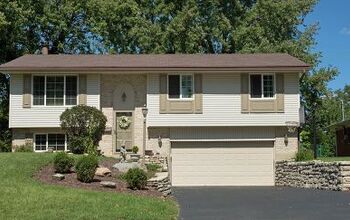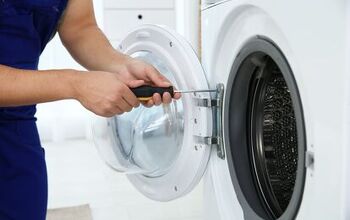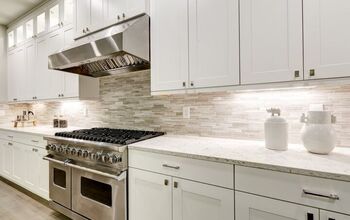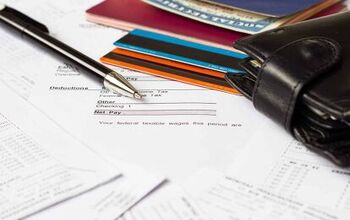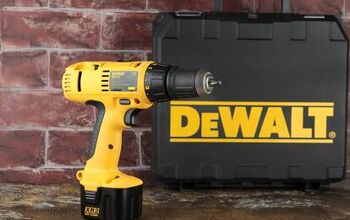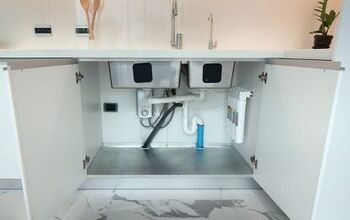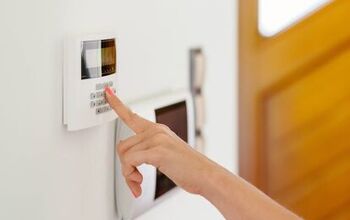How Much Does A Whole House Generator Cost? [2022 Rates]

With concerns of power outages, a generator has been high on many homeowners’ shopping list. However, home generators are a hefty investment, and many away turned by the high cost, not knowing what goes behind the number.
The average whole house generator cost is $11,250 including the unit, materials, and labor. Diesel whole house generators average $9,000, and standard gasoline units average $1,750. You will spend an extra $50 per hour if you need concrete work and $125 for permits if your area requires it.
Thankfully, there are cheaper alternatives, like portable generators. We will also walk you through the cost factors behind whole house generators and relevant installation costs, so you know how to save safely.
Like all utility-related investments, you should always keep in mind that you are shooting for the long run. What are the long-term benefits, savings, and purposes of a whole house generator? That’s why we will start by looking at if a whole house generator is worth your money.
Do You Need a Generator Installation Service?
Get free, zero-commitment quotes from pro contractors near you.

What Is A Whole House Generator?
When a generator connects to all circuits in your home, it’s considered a whole house generator.
A whole house generator is often a permanent installation. The goal is for you to experience no breakage in energy supply. If an outage does happen, your generator should kick right on, and there should be no difference between your regular and backup power.
Do You Need A Whole House Generator?
The most fundamental rule with generator ROI is considering your local weather. How often does it flood, storm, or experience other extreme conditions? How likely will you lose power? How long would the power outage last?
If you’re unsure about where to start, your local electricity company and your HOA are both excellent places to gather information. Naturally, if you are at risk of frequent or prolonged power outages, a whole house generator would be a reasonable investment.
Another thing to consider is your desired comfort level. Are you okay with living a few days only with necessities like hot water and limited lighting, or would that be a deal-breaker? This decides if you need a whole house generator or opt for something more affordable.
How Much Does A Home Generator Cost?
Depending on the type, model, fuel, and capacity, home generators could vary significantly in cost. In general, a home generator costs $1,414 to $7,599, whereas a whole house generator could cost somewhere between $4,200 to $1,5000. These numbers do not include installation costs.
Home Generator Costs By Fuel Type
The first factor that affects your generator cost is fuel type. On average, a generator either uses natural gas (NG) or liquid propane (LP) as its power source, but other options exist as well.
When deciding which type of generator to buy, remember to think about refueling cost as well, especially if you think you’d need the generator running regularly. The table below shows the cost of different types of home generators.
Whole And Partial Generator Costs by Type
| Fuel Type | Price Range (installation not included) |
| Gasoline | $500 – $3,000 |
| Natural Gas | $1,900 – $5,000 |
| Diesel | $3,000 – $15,000 |
| Liquid | $500 – $6,000 |
| Solar | $300 – $5,000 |
As you may notice, the price seems lower than the average whole house generator cost. That’s because the final cost of a whole house generator is also dependent on the capacity needed. In other words, the more wattage you need to power your house, the more expensive the generator will be.
Before we move onto how the capacity affects cost, let’s take a more in-depth look into the different fuel types.
Gasoline: Gas generators are cost-effective. They are also the most affordable options. Gas is easily accessible, and therefore gasoline generators are top-rated among homeowners. The only downside is that gasoline has a short shelf life and is hard to store in cold regions.
Natural Gas: Natural gas generators are more expensive due to increased convenience. They’re directly hooked into your utility lines, so you never need to worry about refueling. It does use more fuel than all other types. Also, if you have concerns about a gas outage, you may want to look into alternatives.
Diesel: Diesel generators range from $3,000 to $15,000, but they are perfect as whole house generators. They are often larger units and run on cleaner energies with much higher efficiency. They save you money in the long run, especially if your house is a power-devouring monster.
Liquid Propane: LP generators cost $500 to $6,000 depending on you are looking for a portable, partial, or whole house generator. Liquid propane storage comes with a higher risk for fire hazards, and these generators also have a shorter lifespan.
Solar: Solar generators are a new addition to the market and cost up to $5,000. They are the most sustainable model and don’t require a constant fuel supply. They are more suitable as whole house generators since smaller units can only store limited energy.
Home Generator Costs By Capacity
As mentioned earlier, another critical cost factor behind home generator pricing is the capacity or wattage. The minimum wattage requirement to run all appliances in an average-sized home is 20KW. Therefore, if you are looking for a stationary whole house generator, be sure it hits that requirement.
Also, depending on the size of your house, the capacity needed may go way higher. Typically, anything above 30KW would be for commercial use only. However, some homes may need generators at 22KW or higher to keep them running.
On average, a 20KW whole house stationary generator costs around $5,000, and a 22KW generator costs around $5,800. If you are looking for generators using solar or other clean energy sources, be prepared to pay more.
Home Generator Installation Cost
The other main piece behind whole house generator costs is the cost for installation. When buying from a mainstream manufacturer, you are usually limited to using one of their certified installers. If you go with someone else, you may lose warranty protections, which could be a major expense if anything goes wrong in the future.
Generally, a permanent whole house generator unit costs $500 to $3,000 to install. Contractors usually quoted on a project-base, but some may choose an hourly quote if they think they’ll need to put in extra work.
Additional Installation Charges
Generator installation could be a good time for you to make other related improvements to your home. These improvements will incur additional costs. However, it’s a better deal to get it done while installing the generator instead of creating separate projects later on.
Some additional installation charges include
- Concrete construction. If you want to build a concrete slab to hold your generator, be ready to pay $50 to $75 per square foot.
- Electrical panel, switch, and wiring improvements. It’s a good idea to do electrical improvements while installing the generator. Your contractor will probably bill you according to their standard hourly rate.
- Permit costs. It usually takes $50 to $200 per permit if you don’t want to go through the hassle yourself.
- Additional material costs.
Whole House vs. Partial House Generators
Would it be cheaper to invest in a partial house generator? Upon first glance, the answer might be yes. But you’d be surprised to find out that whole house generators are typically better long-term investments.
For people with larger homes over 5,000 square feet, it might make more sense to invest in a partial house generator because a whole house one could cost up to $20,000. Your house size is what determines how much your unit will cost. Also, the larger your house, the more complicated the installation will require a higher-capacity generator. Therefore, installing a whole house generator on a large home could cost you up to an additional $10,000.
One Level Down: Partial House Generators
Alternatively, you can choose to install a partial house generator. These generators can still be stationary units but only connect to certain parts of your circuit. Some popular connections include
- Kitchen lights and appliances like the fridge
- Home security system
- Garage door opener
- Gas heater or its blower motor
- Lights in dark or high-traffic areas.
- Central AC unit
- Washer and dryer if you expect the outage to last for a while
Only running essential circuits allow you to use a lower wattage generator. For example, an 18KW standby unit would work for a regular-sized home if you are only powering basic appliances. This could save you thousands instantly.
A Cheaper Alternative: Portable Generators
Another whole house generator alternative is portable generators, which typically go from $300 to $1,200. These are much less expensive because they’re not permanent installations. As the name suggests, portable generators are on-demand devices.
Most portable generators can only power one or two appliances. Imagine them to be a band-aid that you keep on the essential items, such as your refrigerator or your heater.
Portable generators are also cheaper as you don’t need any installation or permits for them. However, if you live somewhere with frequent power outages, a whole house generator would still be the safest and most economical option in the long run.
Whole House Generator Repair Cost
The highest underlying cost of any fixture added to your home is the typical maintenance cost. Believe us. When it comes to your home generator, you do not want to slack off on services.
On average, generator repair costs $75 to $300. Most homeowners spend somewhere around $160 for regular maintenance and $250 for a basic repair. If you require a full replacement, then, of course, the math will be different.
Repair for smaller standby generators, such as a 10KW generator, costs much less and usually sits around $50. However, anything above 20KW would come with a hefty repair bill. If you are running a commercial-grade generator out of your home, expect to pay as much as $600 for a repair.
Some typical generator failures include
- Tank overfill
- Battery failure
- Spark plugs
- Leaks and air pockets
- Coolant problems
- Carburetor clog
- Breaker/switch issues
- Gauge malfunction
Same as how it goes with most appliances, the sooner you can catch a problem, the more likely you can save on repair costs.
Part Replacement
If it was already too late, then take a look at the chart below to know how much you need to replace certain parts.
Generator Parts Pricing
| Parts | Pricing |
| Stator & Rotor | $250 to $1,500 |
| Carburetor | $50 to $300 |
| Engine | $50 to $2,000 (full engine replacement) |
| Voltage Regulator | $40 to $80 |
| Transfer Switch | $200 to $400 |
In the end, your total cost of repair and replacement is dependent on the size, type, and fuel used by your generator. Whole house, standalone units are usually more expensive to keep up than smaller ones.
Also, some models are more prone to having problems and have a shorter lifespan. Therefore, make sure you take maintenance and repair costs into consideration when choosing your home generator.
Whole House Generator Service and Maintenance Costs
In the meantime, conducting regular inspection and maintenance is always a good idea, especially if you haven’t used your generator for a while. The table below gives you a rough estimate of your maintenance frequency and related costs.
Generator Servicing Cost and Required Frequency
| Type | Frequency | Cost |
| Standby | Semi-annual | $200 to $300 |
| Portable | Annual | $80 to $150 |
| NG, LP, Diesel, Gas | Annual | $100 to $300 |
In general, expect for $80 to $150 per checkup. If you bought from an established manufacturer, like Generac, then you may qualify for an annual service contract at a much lower price. You also want to work with approved or certified contractors so you stay under the warranty coverage.
However, if your generator needs a rewinding, then you will be looking at a $300 to $700 bill. Rewinding is complicated and can be potentially dangerous, that’s why it is a worthy investment and should only be done by professionals.
Do You Need a Generator Installation Service?
Get free, zero-commitment quotes from pro contractors near you.

Related Questions
Does a whole house generator increase my home value?
Legally speaking, it should. A whole house generator could increase your property value by 3% to 5%, which often equates to a 100% to 150% ROI compared to the initial investment cost. If you live in an area frequently with extreme weather conditions, that number might even go higher.
What’s the best whole house generator brand?
The best-known and most-established whole house generator manufacturer is Generac. Their products vary from $1,900 to $5,800. The $5,800 model is sufficient to keep a 5,000 square foot home running. Generac generators also come and exceptional warranties.Besides Generac, Craftsman, Kholer, and Briggs & Stratton are also popular brands with credible warranties.
Can I DIY whole house generator installations?
You shouldn’t. As a general rule, we don’t recommend you to DIY any projects involving large appliances, utilities, and risky work environments. A faulty generator installation is not only costly to fix but also extremely dangerous. You should consider the money spent on professional installation as insurance for you and your family’s wellbeing.
How much does it cost to run a generator?
Gas generators cost about $30 per day. Solar generators are the cheapest one to keep running since it doesn’t require fueling. When in standby, you spend less than $5 per month on your generators.
How long do generators last?
At least 20 years. However, frequent use may significantly reduce your generator’s lifespan. Make sure to conduct regular maintenance and service so your generator lasts as long as it can.

With a deep passion for content and creative writing, Xiao Faria da Cunha finds a strong sense of accomplishment in creating quality home guides that resonate with homeowners. When not writing, you can find Xiao creating art masterpieces.
More by Xiao Faria Da Cunha



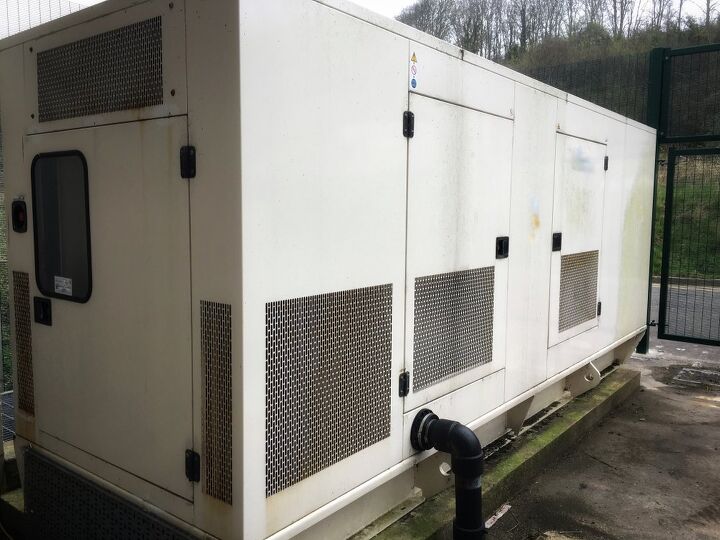







![How Much Do Ant Exterminators Cost? [2022 Rates]](https://cdn-fastly.upgradedhome.com/media/2023/07/31/9092734/how-much-do-ant-exterminators-cost-2022-rates.jpg?size=350x220)
![How Much Does Roof Inspection Cost? [2022 Rates]](https://cdn-fastly.upgradedhome.com/media/2023/07/31/9092683/how-much-does-roof-inspection-cost-2022-rates.jpg?size=350x220)
![How Much Does A Stair Lift Cost? – [2022 Installation Rates]](https://cdn-fastly.upgradedhome.com/media/2023/07/31/9074332/how-much-does-a-stair-lift-cost-2022-installation-rates.jpg?size=350x220)
